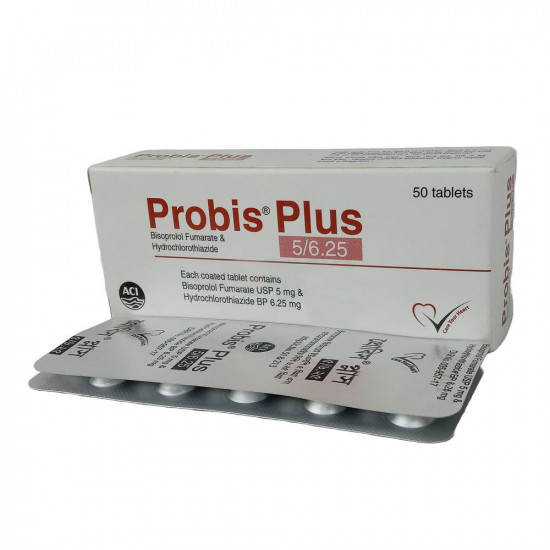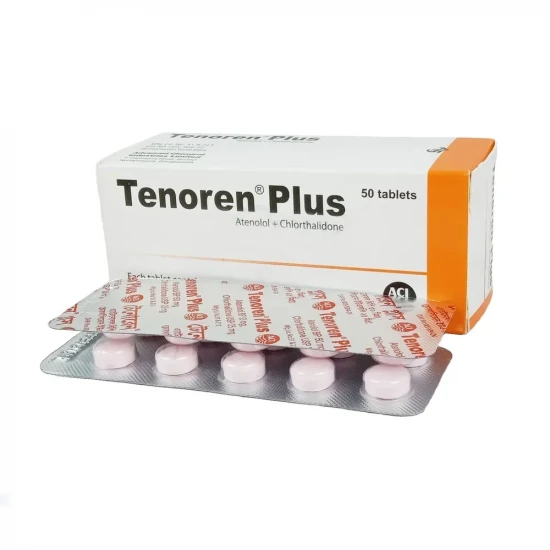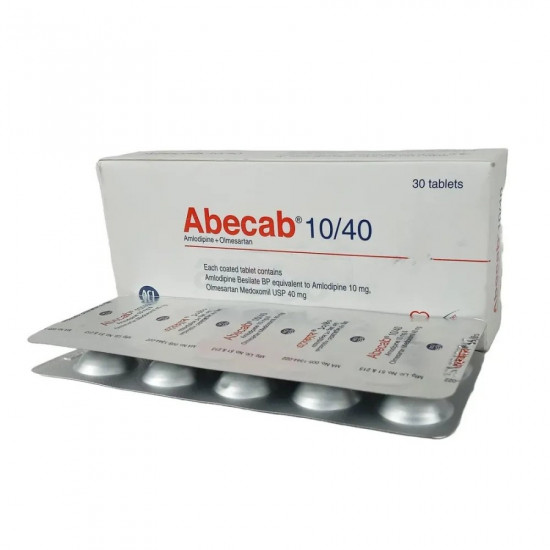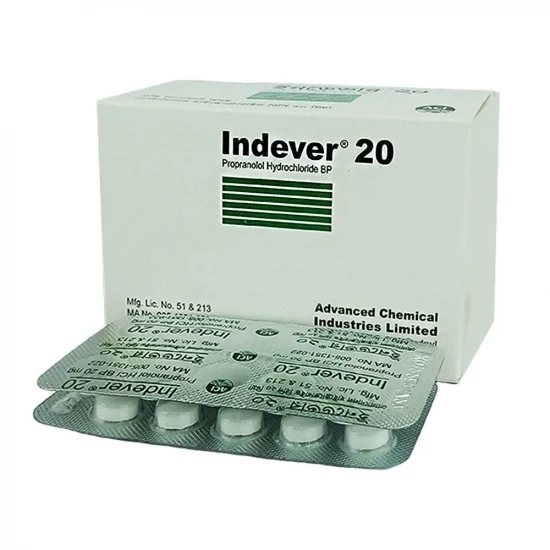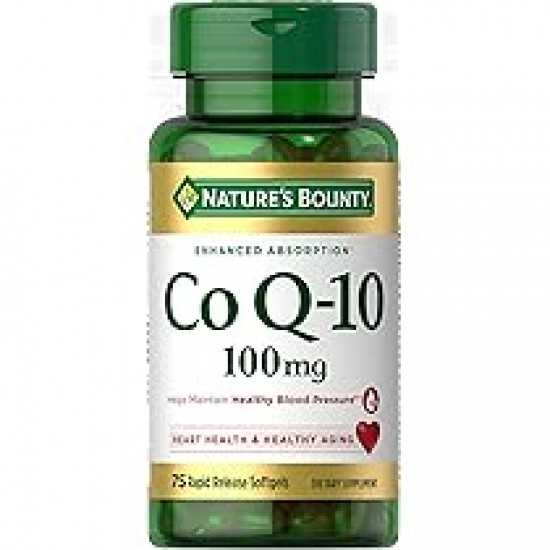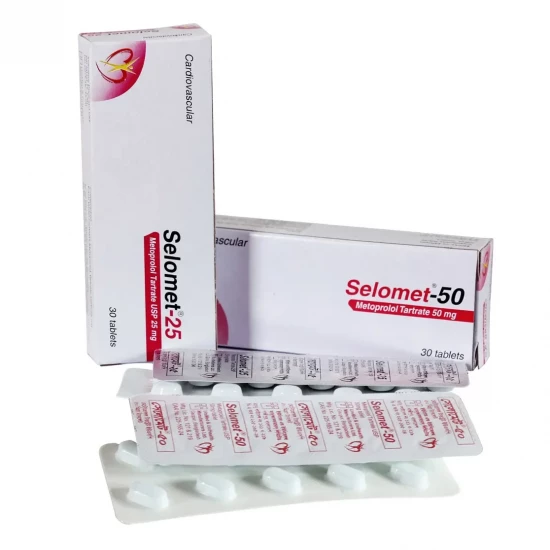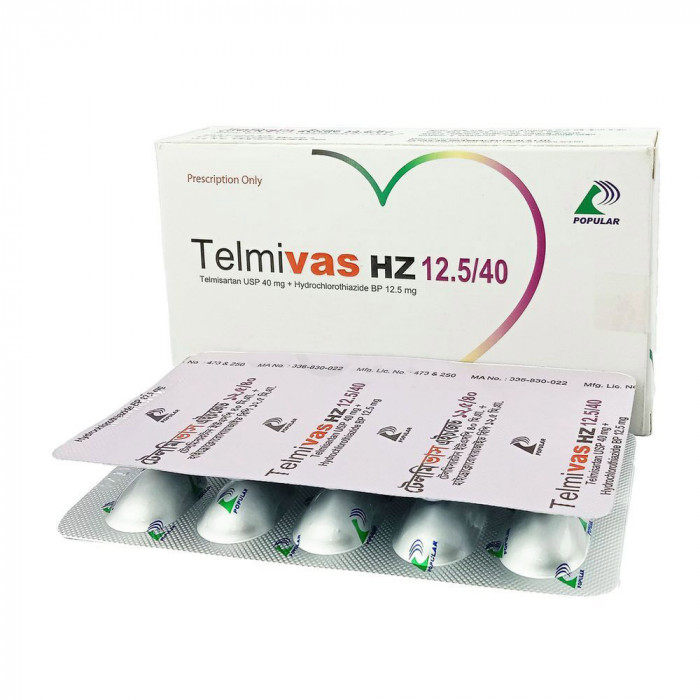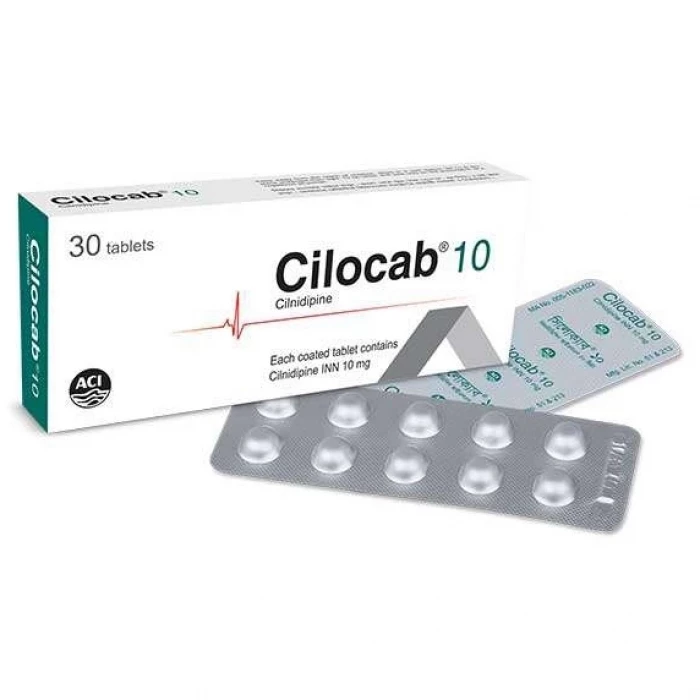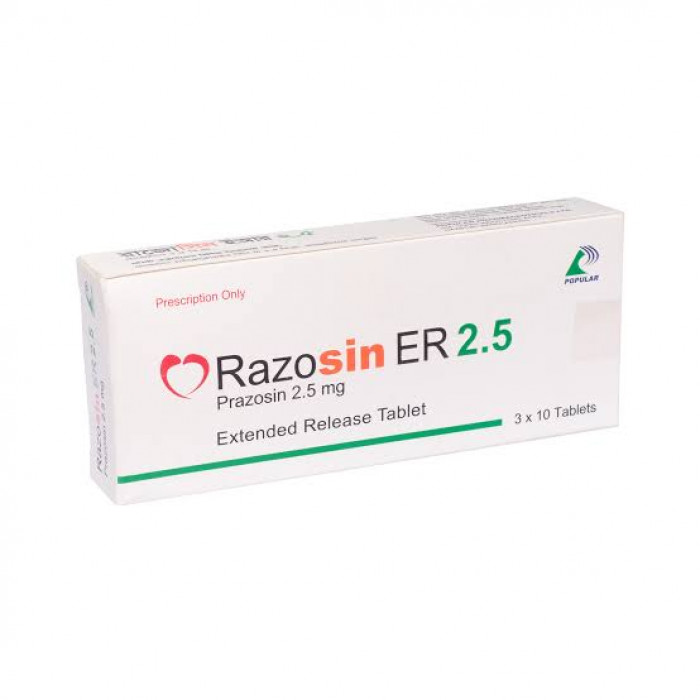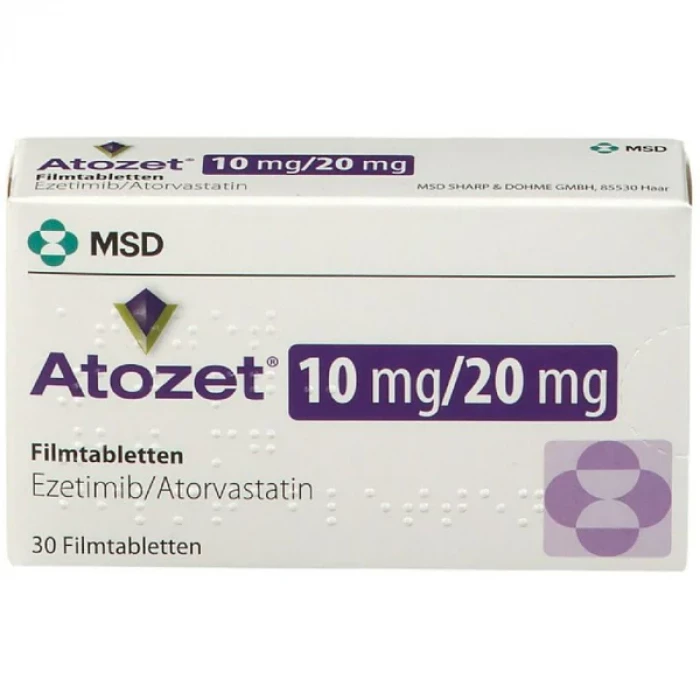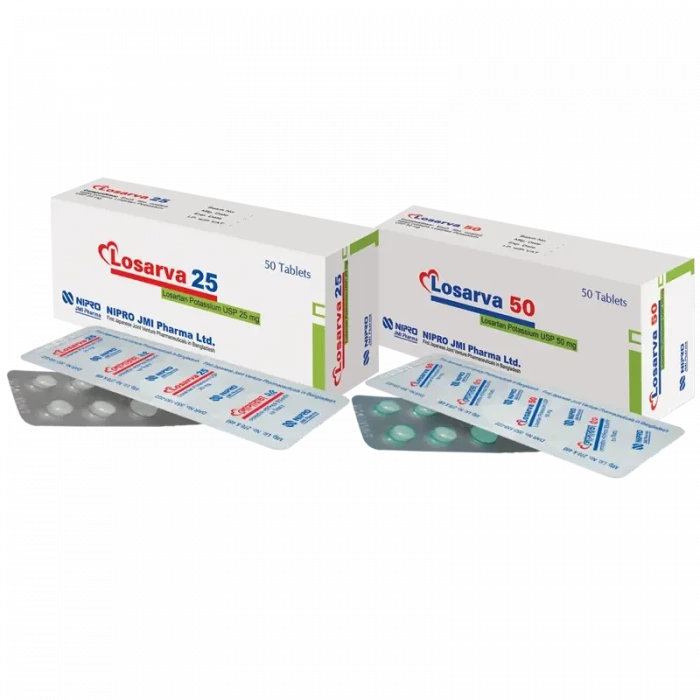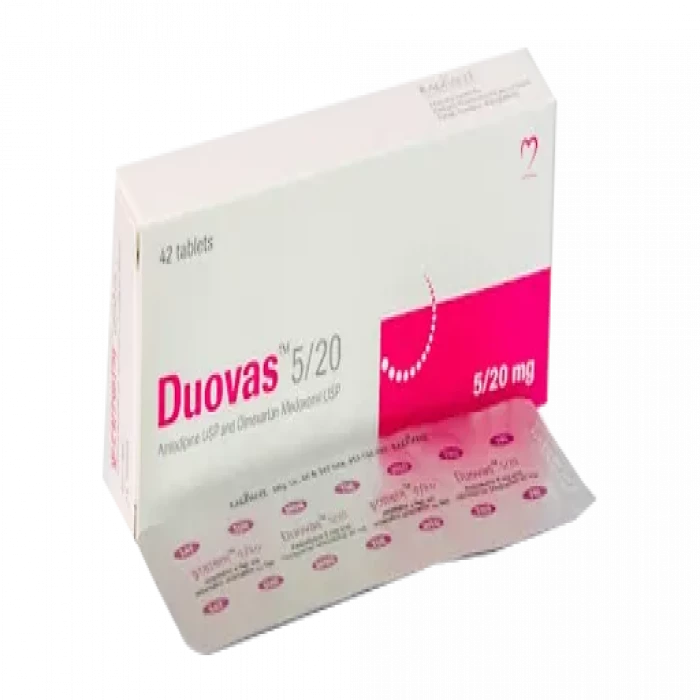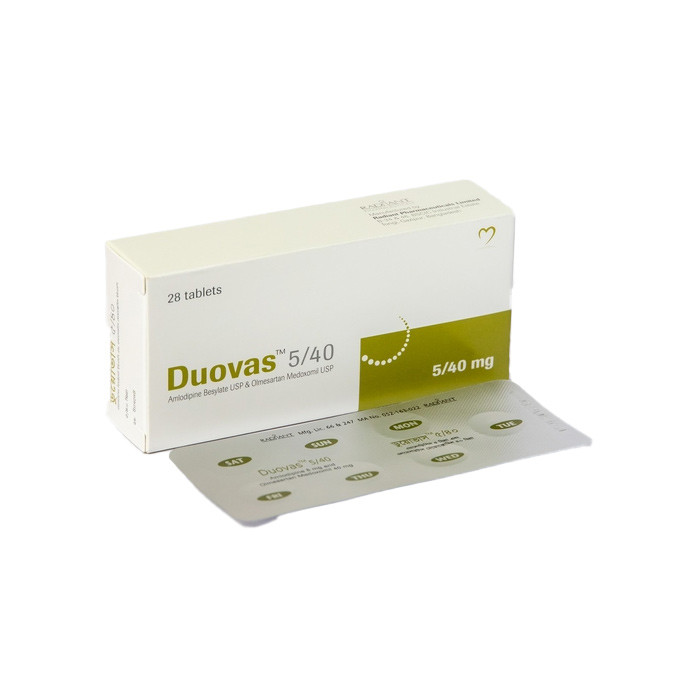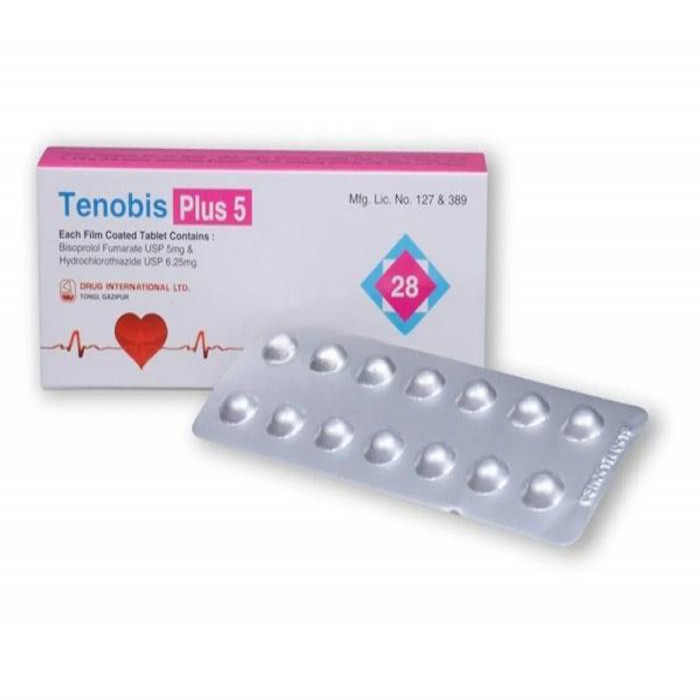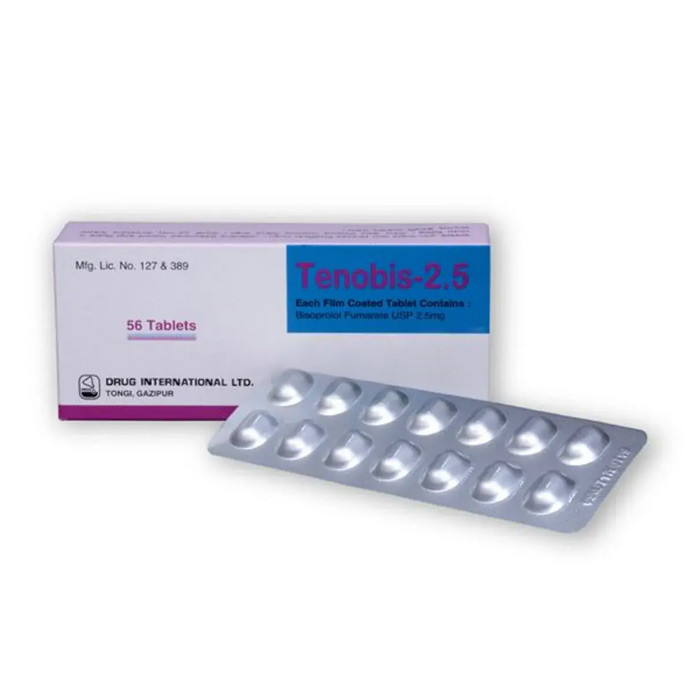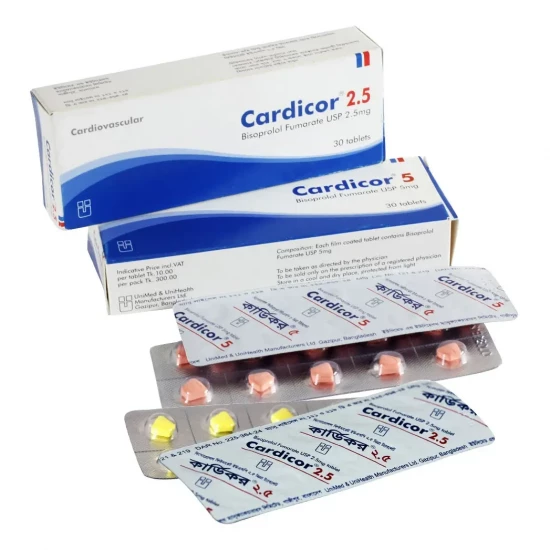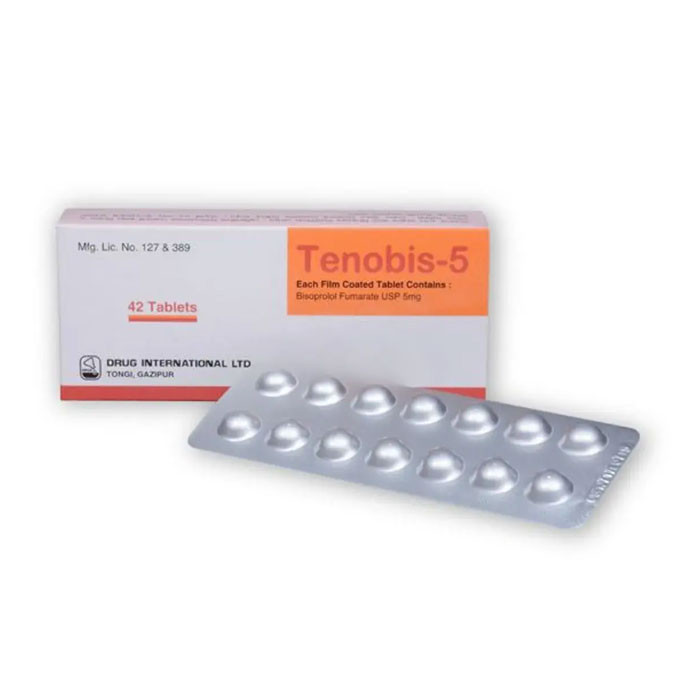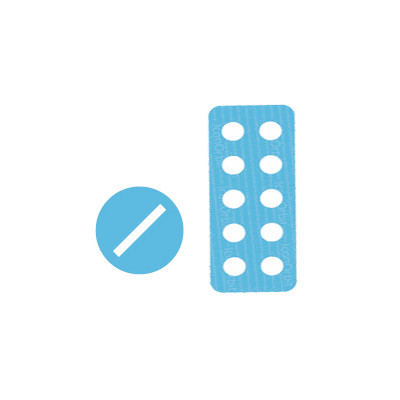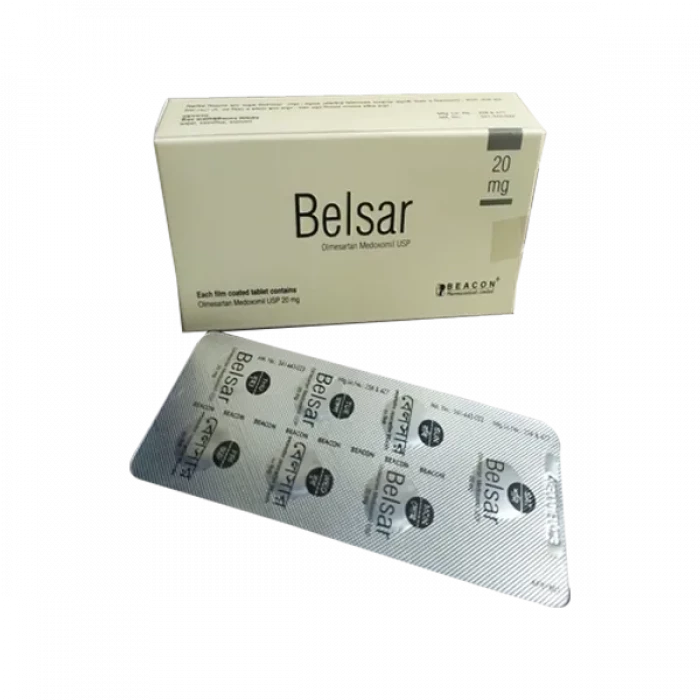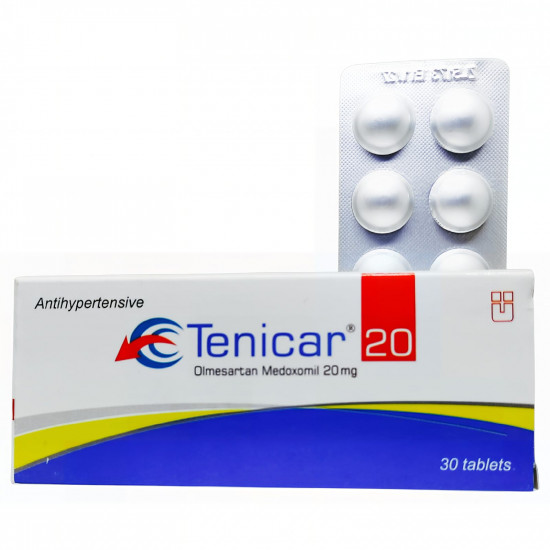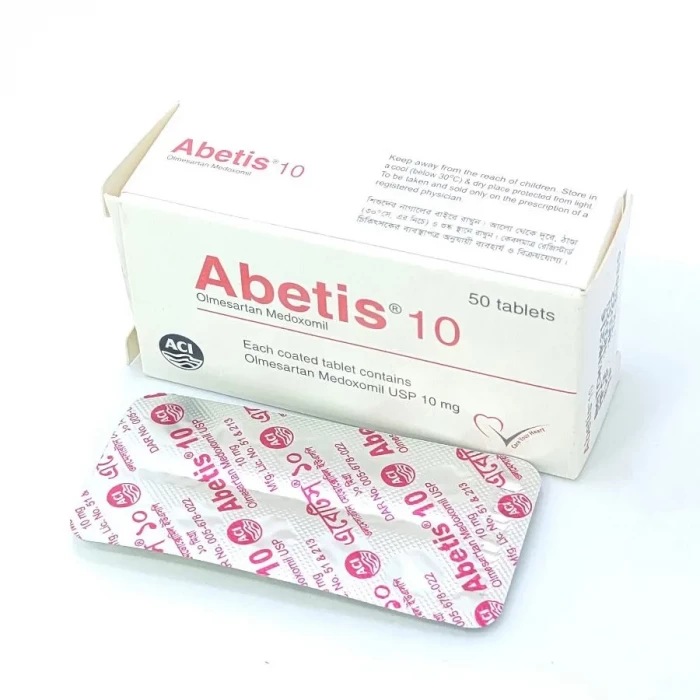
✔ 100% Authentic Product
👁️ Currently Viewing 2586
Abetis 10mg Tablet 50pcs Box
Abetis 10mg Tablet is used for
- Hypertension (high blood pressure)
- Heart failure
- Prevention of heart attack and stroke
Discount
Price: ৳ 333
MRP:
৳
350
5%
Off

100% Genuine Products, Guaranteed

Safe & Secure Payments, Always

Fast, Secure & Efficient Delivery

Proper Packaging
 Cash on Delivery - All over Bangladesh
Cash on Delivery - All over Bangladesh Regular Delivery - 12-24 Hours, Dhaka City* Charge Tk.39-59
Regular Delivery - 12-24 Hours, Dhaka City* Charge Tk.39-59 Regular Delivery - 24-48 Hours, Other Cities* Charge Tk.99-110
Regular Delivery - 24-48 Hours, Other Cities* Charge Tk.99-110
 ফ্রি ডেলিভারিঃ - ৯৯৯ টাকা+ অর্ডারে, ঢাকা
শহরে
ফ্রি ডেলিভারিঃ - ৯৯৯ টাকা+ অর্ডারে, ঢাকা
শহরে ফ্রি ডেলিভারিঃ - ২৯৯৯ টাকা+ অর্ডারে, ঢাকার
বাহিরে
ফ্রি ডেলিভারিঃ - ২৯৯৯ টাকা+ অর্ডারে, ঢাকার
বাহিরে
100% Genuine Products, Guaranteed
Safe & Secure Payments, Always
Fast, Secure & Efficient Delivery
Proper Packaging
 Cash on Delivery - All over Bangladesh
Cash on Delivery - All over Bangladesh Regular Delivery - 12-24 Hours, Dhaka City* Charge Tk.39-59
Regular Delivery - 12-24 Hours, Dhaka City* Charge Tk.39-59 Regular Delivery - 24-48 Hours, Other Cities* Charge Tk.99-110
Regular Delivery - 24-48 Hours, Other Cities* Charge Tk.99-110 ফ্রি ডেলিভারিঃ - ৯৯৯ টাকা+ অর্ডারে, ঢাকা
শহরে
ফ্রি ডেলিভারিঃ - ৯৯৯ টাকা+ অর্ডারে, ঢাকা
শহরে ফ্রি ডেলিভারিঃ - ২৯৯৯ টাকা+ অর্ডারে, ঢাকার
বাহিরে
ফ্রি ডেলিভারিঃ - ২৯৯৯ টাকা+ অর্ডারে, ঢাকার
বাহিরে
✅ Description:
Hypertension is a chronic condition characterized by persistently elevated blood pressure, exerting excessive force against the walls of blood vessels. This heightened pressure can lead to serious health issues such as angina (chest pain), heart attack (due to blocked blood supply to the heart), and damage to vital organs like the brain, kidneys, and eyes. Factors contributing to the risk of hypertension include obesity, smoking, diabetes, excessive alcohol consumption, lack of physical activity, stress, and kidney diseases.
Olmesartan Medoxomil is classified as an antihypertensive medication, specifically used to manage high blood pressure. If untreated, hypertension significantly raises the risk of heart-related conditions such as heart attack, heart failure, stroke, irregular heartbeat, and various other complications.
Safety Advices

Alcohol
UNSAFE
Alcohol should not be taken while using Olmesartan Medoxomil. It may worsen the health condition.

Pregnancy
CONSULT YOUR DOCTOR
Abetis 10 is not recommended during early pregnancy and must not be used after the third month of pregnancy, as it can cause serious harm to the baby. Consult your doctor before taking this medication.

Breastfeeding
CONSULT YOUR DOCTOR
Abetis 10 is not recommended for breastfeeding women. Your doctor may choose an alternative treatment, especially if you are breastfeeding a newborn or a premature baby. Consult your doctor for advice before taking this medication.

Driving
UNSAFE
Do not drive or operate machinery if you feel dizzy or sleepy after taking Abetis 10. Consult your doctor for guidance before using this medication.

Kidney
CONSULT YOUR DOCTOR
Abetis 10 should be used with caution in patients with kidney problems. Consult your doctor before taking this medication.

Liver
CONSULT YOUR DOCTOR
Abetis 10 is not recommended for patients with jaundice. It should be used with caution in patients with liver disease. Consult your doctor before taking this medication.
✔️ Uses of Abetis 10mg Tablet
- Hypertension
- Diabetic Nephropathy
✔️ How does Abetis 10mg Tablet work?
Abetis 10mg Tablet relaxes the blood vessels by blocking the action of a chemical that usually makes blood vessels tighter. This lowers the blood pressure, allowing the blood to flow more smoothly to different organs and the heart to pump more efficiently.
✔️ Side Effects of Abetis 10mg Tablet
Common side effects in adults include dizziness, headache, diplopia, ataxia, nausea, blurred vision, somnolence, pharyngitis, and rash. In children, side effects include vomiting, diarrhea, infection, fever, abdominal pain, and tremor. Clinical trials reported adverse reactions similar to placebo, with dizziness being the only reaction occurring in more than 1% of patients treated with Abetis compared to placebo.
✔️ Quick Suggestions:
- Take Abetis 10mg Tablet at the same time every day to help you remember to take it.
- Abetis 10mg Tablet can make you feel dizzy for the first few days. Rise slowly if you have been sitting or lying down for a long time.
- Your doctor may get regular tests done to monitor the level of urea, creatinine, and potassium in your blood.
- Avoid taking anti-inflammatory medicines such as ibuprofen along with this medicine without consulting your doctor.
- Abetis 10 mg Tablet may increase the level of potassium in the blood. Avoid taking potassium supplements and potassium-rich foods such as banana fruit juice, coconut water, and broccoli.
- Do not take Abetis 10 mg Tablet if you are pregnant or breastfeeding.
- Do not stop taking it suddenly without talking to your doctor.
✔️ Indication of Abetis 10mg Tablet
Abetis is used to treat hypertension and can be administered alone or with other antihypertensive medications.
✔️ Pharmacology
Olmesartan, the active ingredient in Abetis, inhibits the vasoconstrictor effects of angiotensin II by selectively blocking its binding to the AT1 receptor in vascular smooth muscle. This prevents vasoconstriction, aldosterone release, cardiac stimulation, and renal sodium reabsorption, leading to lowered blood pressure. Unlike ACE inhibitors, olmesartan does not affect the response to bradykinin.
✔️ Dosage & Administration of Abetis 10mg Tablet
The dosage should be individualized. The usual starting dose is 20 mg once daily, which can be increased to 40 mg after two weeks if needed. Doses above 40 mg do not show additional benefits. No dosage adjustments are needed for elderly patients, those with moderate to marked renal impairment, or those with hepatic dysfunction. For patients with possible intravascular volume depletion, a lower starting dose should be considered. Abetis can be taken with or without food. Safety and effectiveness in pediatric patients have not been established.
✔️ Interaction
No significant drug interactions have been reported with digoxin or warfarin. The bioavailability of olmesartan is not significantly altered by antacids. Abetis is not metabolized by the cytochrome P450 system, so interactions with drugs affecting these enzymes are unlikely. However, NSAIDs, including COX-2 inhibitors, may reduce renal function and attenuate the antihypertensive effect of olmesartan. Regular monitoring of renal function is recommended for patients taking both Abetis and NSAIDs
✔️ Contraindications
Olmesartan is contraindicated in patients with hypersensitivity to any component of the product.
✔️ Pregnancy & Lactation
Abetis is classified as Pregnancy Category C. It should be discontinued as soon as pregnancy is detected due to the risk of injury or death to the fetus. It is not known if olmesartan is excreted in human milk, but it is present in low concentrations in rat milk. A decision should be made to discontinue either nursing or the drug, considering the drug's importance to the mother.
✔️ Precautions & Warnings
Renal function changes may occur in susceptible individuals, particularly those with severe congestive heart failure. Monitoring of renal function is advised, as treatment with olmesartan may be associated with oliguria, progressive azotemia, and rare cases of acute renal failure and death.
✔️ Storage Conditions:
Abetis 10 should be stored at room temperature, away from heat and direct light. Keep it away from the reach of children.
⚠️Disclaimer:
At ePharma, we’re committed to providing accurate and accessible health information. However, all content is intended for informational purposes only and should not replace medical advice from a qualified physician. Please consult your healthcare provider for personalized guidance. We aim to support, not substitute, the doctor-patient relationship.




